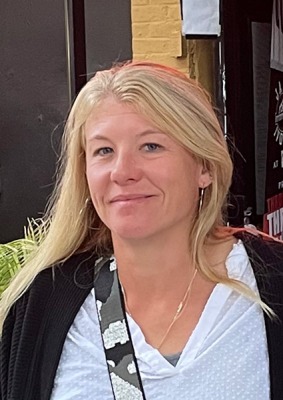
As the recycling coordinator for the town of East Longmeadow since 2017, Elizabeth Bone has been on the forefront of helping residents understand how to make a difference for the planet. With experience that runs back to her role on Longmeadow’s Recycling Commission, which began in 2008, she had a wealth of experience working with schools and towns to promote recycling efforts.
In recognition of Earth Day on April 22, Prime asked Bone for some tips on how we can make a difference for the planet in our everyday lives. Here’s what she shared:
“A few years ago China stopped taking our recycling, which made America scramble with what to do with the recycling. In the past few years, recycling facilities have popped up across the country and we have started to recycle paper and containers within America.
“But the best way to reduce plastics is to not use them at all. When buying items, look for glass containers, powdered soaps, deodorants, toothpowder, beewax wraps, metal cutlery, and package-free items. There are many online stores, and a few local stores that sell plastic free and reusable items. When you go to the store, take a look at the shelf and you’ll find a few options for reduced or plastic-free shopping.”
“There are a few natural items that can be used for cleaning. Baking soda is a wonderful cleaner that combined with water can remove residues and stains, de grease pans, unblock sinks, and even wash fruits and vegetables. White vinegar combined with herbs like lavender, thyme or lemon can become an all-purpose cleaner. Combining white vinegar and 70 percent rubbing alcohol is a wonderful glass cleaner. If you choose to purchase, there are many cleaners on the market that are made of all natural ingredients. Look online, peruse the shelves at your local store, or make a trip to a zero waste store. Remember to bring your own containers!”
“Depending on where you live, many towns offer recycling options at their transfer station. If they do not take your items, local towns also host events and advertise on their social media pages to help residents get rid of these items.
“Libraries sometimes take books, but a few towns host book drop boxes.
“Textile recycling is easy with so many options. There are drop boxes located at transfer stations or around in visible locations that take textiles in almost any conditions (just not wet, oily, or moldy).
'There are local charities such as Big Brother Big Sister that will pick up from your house. Just call or go onto their website to schedule a pick up. You can also bring wearable clothing to consignment stores such as Savers or Plato’s Closet. When you have an item that is broken or damaged, you can search online for a Fix it Event.
“Fix it Clinics are becoming more popular because awareness of our waste problem is becoming more evident. Fix-It Clinics offer free, guided assistance from volunteers with repair skills to disassemble, troubleshoot, and (hopefully) fix small household appliances, clothing, electronics, mobile devices and more. If there are no other options left, it will head to the landfill or incinerator.
“ Hopefully residents will make the effort to be informed, reduce their waste, eat sustainably, and use their voice to make positive changes for our community.”